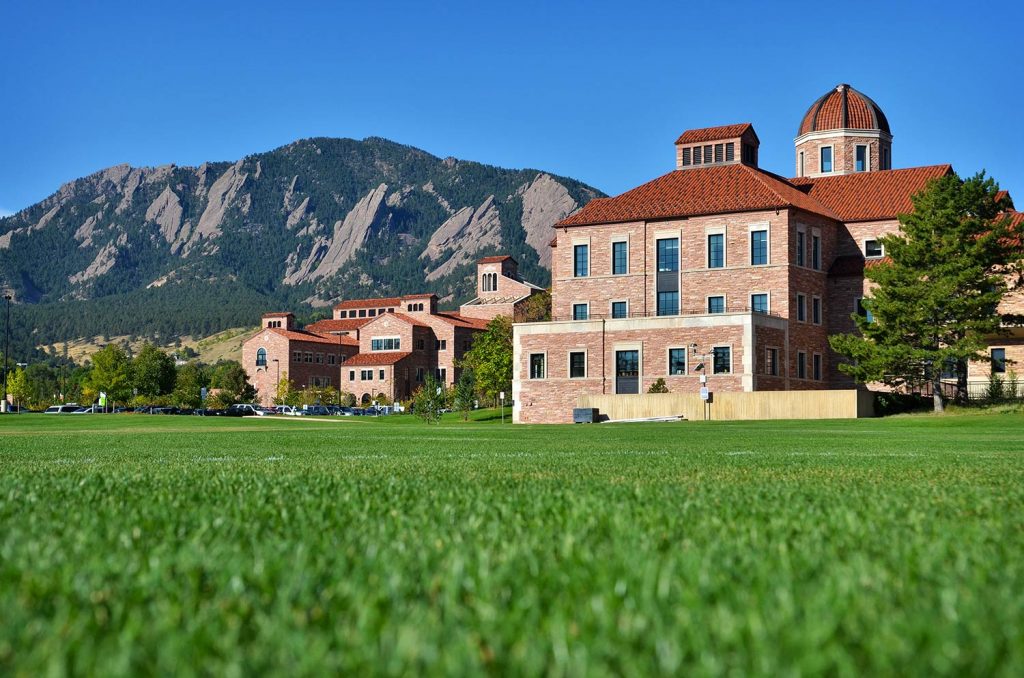June MBA Deadlines You Need to Know

Don’t be left behind, and get a jump on the MBA application process this June! Here’s your guide to this month’s MBA admissions deadlines in our top metros. Continue reading…
Here Are the Front Runners For Amazon’s New HQ2 Campus

Last week, 20 cities in the United States and Canada were informed by Amazon that their bid to host the tech giant’s second headquarters, HQ2, was still being considered. Continue reading…
20 Cities Survive Amazon HQ2 Shortlist

Four months after Amazon announced plans to construct a second headquarters, North American cities have been making grandstanding pleas in order to court the ecommerce behemoth. New York City’s mayoral office lit up the Empire State building with Amazon’s glowing orange hue in a symbolic gesture, while certain cities like Chicago went the more extreme route, proposing laws that could funnel income taxes directly back to the company. After much speculation, here is the official Amazon HQ2 shortlist:
- Atlanta
- Austin
- Boston
- Chicago
- Columbus, Ohio
- Dallas
- Denver
- Indianapolis
- Los Angeles
- Miami
- Montgomery County, Md.
- Nashville
- Newark
- New York
- Northern Virginia
- Philadelphia
- Pittsburgh
- Raleigh, N.C.
- Toronto
- Washington, D.C.
Unsurprisingly, most of the cities that made the cut were among the largest in North America, with only one Canadian city—Toronto—left standing. Over 230 cities from the U.S., Canada, and Mexico made official bids for the company’s second headquarters, with Amazon prioritizing tech-centric metros of populations larger than 500,000. In fact, only four of the 20 metro areas—Miami, Nashville, Newark, and Pittsburgh—have a population of less than half a million, with Newark being the smallest of the entrants. Notably, Newark offered perhaps the largest financial incentive to the company, proposing upwards of $7 billion in tax incentives.
How the Amazon HQ2 shortlist was formed is not totally known, according to the New York Times:
“According to people briefed on the process who would speak only anonymously because the deliberations were private, the process was conducted by a team of about a dozen people within Amazon, including economists, human resources managers and executives who oversee real estate. Jeff Bezos, Amazon’s chief executive who was the mastermind behind turning the search into a public process and coined the term “HQ2,” was also involved, the people said.”
At the time of the initial announcement, Amazon released a stream of positive economic statistics about its impact in Seattle, home to the original headquarters. The company stated (although these statistics are still not yet verified by any source outside of Amazon) that it added $38 billion USD to the value of the city from 2010-16 alone, due to its investments and rapidly expanding workforce. Detractors argue that the financial value added to the city did not positively impact the quality of life, however, with more than 51 percent of Seattle residents making less than $50,000 per year and more than quarter of city residents earn less than $25,000 per year. The influx of high-level employment also contributed to rapidly rising housing costs and poorer traffic.
Experts from CNBC believe that Raleigh might be the front-runner of the remaining entrants, which matches the initial bid criteria the most. Although some speculate that Austin most aligns up with Amazon’s future. The company declined to announce when the final decision will be made.
What Amazon Means For MBA Students
Not so secretly, Amazon has become one of the world’s largest MBA recruiters, hiring students from top schools all over the world. We’ve previously outlined the details of why it has become such an attractive destination for business school students.
The company creates a direct pipeline from its MBA internship program to full-time employment, which should rapidly increase with the creation of HQ2. In a previous interview with the Financial Times, Miriam Park, the Amazon Director of University Programs, highlighted the company’s recruitment strategy:
“The Amazon recruitment process is designed to ensure we hire top candidates with high-growth potential whatever their background may be. As part of this we recruit current MBA students and MBA alumni for permanent and internship opportunities worldwide and see MBAs as an important part of our leadership development. We value people who can balance long-term strategic thinking with tactical execution, and who have the ability to make data-driven decisions.”
Stay tuned for more information about the second headquarters and more potential MBA employment opportunities with MetroMBA.
Finding Your Ideal Marketing MBA in Denver

Earning an MBA degree is one of the best things a professional can do at any level of their career to develop a rock solid foundation of business knowledge. This generalized education not only provides students with the facts and figures they need to start or run a business, but also with the ability to be effective managers and leaders.
While many students pursuing an MBA can appreciate the open-ended nature of the degree as it keeps a number of postgraduate opportunities open to them, others may look for a more focused direction. Luckily, many MBA programs offer concentrations or majors for the degree, providing students with industry-specific training without sacrificing the strong foundational knowledge offered by an MBA.
With a strong local economy and average salary significantly above the national average, the Denver metro area has been rated the fourth best city in the country for starting a new business. Whether you are an executive looking to expand their leadership opportunities or still early in your career, Denver could be the perfect place to earn a degree and grow in your career. And with the many specialization opportunities available at Denver business schools, students with interest in a field like marketing have numerous opportunities to expand their education.
Colorado State University College of Business
The Colorado State University College of Business offers an online graduate certificate in Marketing Management for students enrolled in any of the school’s MBA programs. In addition to earning an MBA and the core courses for the degree, CSU students can pursue an additional nine credits with a particular focus in marketing.
All of the courses are taught by faculty at the College of Business’ Department of Marketing and are offered online to offer students full flexibility. The curriculum for the certificate includes courses such as: marketing Strategy and Planning, Marketing Management, Consumer Behavior, and Strategic Selling for Business Customers.
University of Colorado – Denver Business School
Students at the University of Colorado Denver Business School can use their elective credits of their MBA degree to specialize in marketing. At UC Denver, the Marketing specialization provides students with the necessary skills and ability to manage a firm and build profitable, long-term relationships. And although marketing may seem a broad focus for a degree, students can consult with the university’s marketing faculty to help narrow their focus and select the electives best suited to their career goals.
Students will take their MBA core courses in addition to 12 elective credits for Marketing specialization courses. Subjects in the marketing specialization may include topics like: Marketing Management, Buyer Behavior, Customer Relationship Management, Services Marketing, and more.
YOU MAY ALSO LIKE: Getting To Know The Denver Metro
University of Colorado, Boulder – Leeds School of Business
At the UC Boulder Leeds School of Business, students can choose marketing as an area of expertise for their MBA degree. This program will help students prepare for a role in an ever-changing global marketplace, allowing MBA graduates to better navigate the unique challenges of markets and entrepreneurship throughout the world. By focusing their MBA in marketing, UC Boulder students will develop the necessary skills to serve in a variety of ways within the industry, from marketing management to new product development, or consulting.
The UC Boulder Marketing MBA offers a number of elective options that can help students further customize their focus in marketing, from courses like Market Intelligence, Pricing Strategy & Tactics, Integrated Marketing Communications, and Entrepreneurial Marketing.
University of Denver – Daniels College of Business
The Daniels College of Business MBA, ranked among the top 10 most innovative MBA programs in the country by Inc. Magazine earlier this year, is uniquely structured around four core business challenges. Categorized as an enterprise, social good, corporate and global challenge, students simultaneously take classes and work on the challenges, having the chance to apply immediately what they’ve learned.
Included in the Denver MBA’s structure are six electives, four of which can be focused in a particular area to comprise a concentration. For those interested in concentrating in marketing, Daniels provides the hands-on learning in subjects like Digital Marketing and Brand Management that will give students the skills they need to achieve success in the industry.
Getting To Know The Denver Metro

Resting beside the scoping silhouette of the Rocky Mountains lies Denver, the 19th most populous metro area in the United States, and arguably its most serene, uniquely blending urbanization and naturalism.
As the Denver metro continues to expand and its economy continues to swell, we at MetroMBA are expanding as well. As we continue our coverage of the best MBA offerings in North America and the UK, we welcome our readers to take a look at the best business schools Denver has to offer.
Getting To Know The Denver Metro
If you haven’t heard already, Denver—The Mile High City—rests one mile [5,280 feet (1,609 meters)] above sea level. For those already familiar with the joyous overture of altitude sickness (bring a water bottle—everywhere), this not-so-fun-fact is only a small part of Denver’s academic environment. Located only several minutes south of center city Denver is the Daniels College of Business at the University of Denver. Founded in 1908, Daniels is among the eight oldest business schools in the United States, and features over 2,200 combined graduate and undergraduate students. Named after Bill Daniels, who donated an immense grant to the institution, the school officially changed its name from the College of Business Administration to the Daniels College of Business in 1994.
The school is routinely lauded by the likes of U.S. News, Forbes, and the Financial Times for its highly-recommended entrepreneurial and Executive MBA programs, as well as the MBA@Denver Online MBA. For the 2017-18 academic year, the Daniels full-time MBA (known as the Denver MBA), will cost students $69,391. This is just shy of the average Daniels MBA graduate average starting salary of $69,842. About 68 percent of Daniels’ graduates earn a full-time job just three months after graduation.
Located right in the middle of center city Denver is the Colorado University Denver Business School, which features five different MBA program offerings, including: a full-time Professional MBA; an 11-month accelerated MBA; the CU Denver Business School Executive MBA; the Health Administration MBA; and the highly-ranked Executive MBA Program in Health Administration, which is regarded by U.S. News as one of the 25 best “graduate programs in health services administration.” The UC Denver Business School, which was originally part of CU Boulder, has a second location 20 miles south of its center city location at the Liniger Building, formally part of CU South Denver.
Its original home, the University of Colorado Boulder, houses the most highly-regarded business institution in the state: the Leeds School of Business. Ranked among the best business schools in the country by both U.S. News and Forbes, Leeds is located less than 30 miles northwest of center city Denver. It offers both an exceptional full-time and Evening MBA, enrolling around 300 total students in both programs.
The accredited business school is, in fact, two years older than the aforementioned Daniels College of Business, making it the oldest business school in the state. Leeds holds a staggering 97 percent graduation rate for MBA students, who earn an average of $80,123 upon receiving full-time employment. MBA students that graduate from Leeds have been recently employed by notable companies like Deloitte, McKinsey & Co., Microsoft, Oracle, and more.

The Leeds School of Business at CU Boulder
Travel about an hour north of Denver and you’ll find the Colorado State University College of Business, located in Fort Collins. The CSU College of Business, located on the north end of the CSU campus, hosts a myriad of well-rounded MBA programs, including the universally well-regarded Online MBA—ranked among the 20 best in the world by the Financial Times. The MBA program is also one of the most affordable in the state, with current full-time tuition coming at a total cost of $40,368, and $40,897 for part-time students.

Colorado State University
The Denver Metro Business Community
After the federal and state government, both the first and second largest employers in the state, Denver is home to several of the country’s largest healthcare institutions, including American Medical Response and DaVita, as well as large employment branches for companies like Kaiser Permanente. The metro area is also home to the famous Coors Brewing Company, as well as more than 160 other brewing companies, which helped the city earn the nickname “The Napa Valley of Beer.” In addition, Denver is the original home of Western Union, Frontier Airlines, and multiple fast food chains, including Chipotle, QDoba Mexican Grill, and Quizno’s. According to the U.S. Bureau of Labor Statistics, the city has also seen employment figure increases in almost all industries.
Explore MBA programs in the Denver metro, subscribe to our informative weekly newsletter, and follow us on Facebook.
Georgetown MBAs Win 2017 Fuels Institute Case Competition

According to Georgetown University, three McDonough School of Business MBA students recently won the 2017 Fuels Institute Case Competition following to their proposal on incorporating liquefied natural gas into the U.S. transition to autonomous vehicles. Continue reading…
